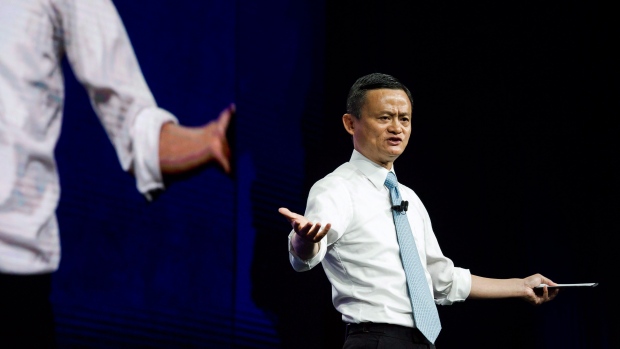Nov 9, 2018
Alibaba expects strong U.S. goods sales despite trade war
, Bloomberg News

Alibaba Group Holding Ltd. (BABA.N) expects strong sales of American products on its web marketplaces during the Singles’ Day shopping extravaganza, despite the tit-for-tat trade war with the U.S. and a slowing Chinese economy.
Alibaba President Michael Evans said he was "not too concerned" about the trade fracas damping sales during the event that kicks off Sunday. "11/11 is not an event that relies exclusively on any one market," Evans told Bloomberg TV in an interview Friday. "We will be working with over 200 countries and regions as part of this enormous event and so we don’t expect any one area to have a huge amount of influence, other than China of course."
Regarding the Chinese economy, Evans said there’s "some uncertainty about what will happen going forward," while noting growth in the country is still running at about 6.5 per cent a year.
Alibaba has seen softer demand for big-ticket items, such as washing machines, televisions and automobiles, Evans said. But other sectors, like cosmetics, food, fashion and apparel, are still going strong. The company is focusing on the 300 million Chinese people who are expected to enter the ranks of the middle class over the next five years, Evans said.
The company, based in Hangzhou, China, markets itself as a way for global brands to reach the Chinese consumer, with more than 10,000 American brands, including Nike and Starbucks that sell their goods on Alibaba’s Tmall Global site. Billionaire co-founder Jack Ma has been a vocal opponent of the tariffs on hundreds of billions of dollars’ worth of U.S. and Chinese goods, calling the trade war "the most stupid thing in this world." China’s retaliatory tariffs on U.S. goods include products like food and wine, which are popular items sold on Alibaba’s platforms.
Alibaba has already discarded its pledge to create a million jobs in the U.S., but it has not “given up our initiatives to create jobs in the U.S. for small businesses,” Evans said. "It is a little bit more difficult if tensions between these two governments continue, because we don’t want to get caught in the middle of geopolitical discussions."







